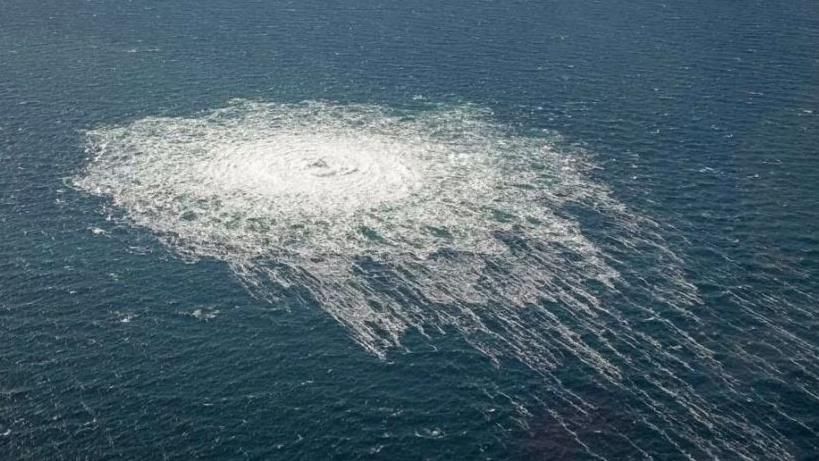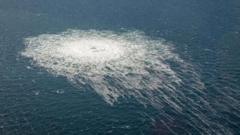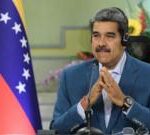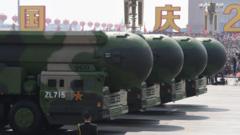
The Nord Stream gas pipelines were sabotaged by a series of explosions in September 2022
Damien McGuinness
BBC News, Berlin
German state prosecutors trying to solve the mystery of who blew up the Nord Stream gas pipelines under the Baltic Sea in 2022 have issued an arrest warrant for a Ukrainian diving instructor.
The suspect has been named as Volodymyr Z by German media, who have treated the sabotage like a sensational true crime drama.
Ines Peterson, a spokeswoman for Germany’s prosecutor general, declined to confirm the arrest warrant, telling the BBC that her office never commented so as not to jeopardise the investigation by giving the suspect a chance to escape.
But the Polish prosecutor general’s spokeswoman, Anna Adamiak, in Warsaw told the BBC’s Adam Easton that a European Arrest Warrant had indeed been passed to them by German prosecutors.
When Polish officers went to Volodymyr Z’s home in early July, he had already left the country for Ukraine, she said.
He had until then been living in a quiet residential area of Pruszków, a town near Warsaw, German media say.
According to an investigation by three German media outlets, including public broadcaster ARD, Volodymyr Z was part of a team of experienced Ukrainian divers who in September 2022 hired a German yacht, sailed out into the Baltic Sea and planted the explosives, blowing up three of the four Nord Stream pipelines.
A Ukrainian man and a Ukrainian woman are also suspected of involvement.
If the latest media reports are true, that a group of Ukrainian divers blew up the pipelines, it still doesn’t answer the broader question of who ordered the attack.
There is so far no public evidence linking it to the Ukrainian or Russian state or for that matter any other country or individual group.
For years there have been conspiracy theories around the attack, with unconfirmed rumours that governments in Kyiv, Moscow or Washington were behind the attack.
There has also been speculation that Ukrainian or Russian military groups, acting without the knowledge of the Ukrainian government, might have been responsible.
Underwater drone footage of the damage to the Nord Stream pipeline
The Nord Stream pipelines carried gas from Russia to Germany under the Baltic Sea and were a controversial and unpopular symbol of European energy dependence on Moscow. In other words it’s easy to imagine motives for such an attack.
For years Eastern Europeans warned Berlin that this dependence on Russian gas made Europe vulnerable.
But successive German governments, from Gerhard Schröder’s left-wing coalition to Angela Merkel’s conservative-led administrations, argued that binding Russia to Europe with energy and trade links would help both countries economically and ensure peace.
Russia’s full invasion of Ukraine in February 2022 destroyed that hope and mainstream politicians across the political spectrum in Germany have now admitted they were wrong.








